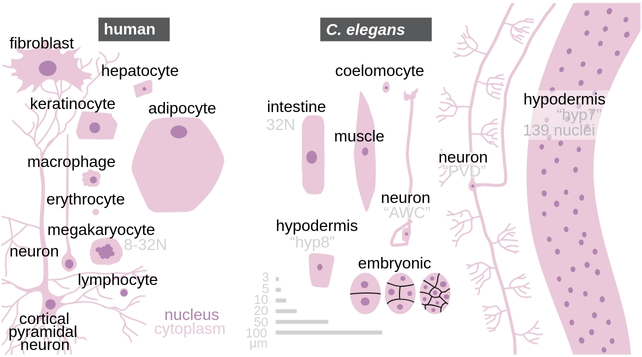The high blood pressure drug rilmenidine has been shown to slow aging in worms, an effect that could hypothetically help us live longer in humans and keep us healthier in our senior years.
Previous research has shown that rilmenidine mimics the effects of calorie restriction at the cellular level. In various animal models, it has been shown that reducing available energy, while maintaining nutrition in the body, extends lifespan.
Whether this translates to human biology, or is a potential risk to our health, is a subject of ongoing debate. Finding ways to achieve the same benefits without the cost of extreme calorie reduction could lead to new ways to improve health in old age.
In a study published in 2023, young and old Caenorhabditis elegans worms treated with the drug – normally used to treat high blood pressure – lived longer and presented higher measures on a variety of health markers, in the same way as restricting calories, as the scientists had hoped.
“For the first time, we have been able to demonstrate in animals that rilmenidine can extend lifespan,” says molecular biogerontologist João Pedro Magalhães of the University of Birmingham in Great Britain.
“We now want to investigate whether rilmenidine may have other clinical applications.”
The C. elegans worm is a favorite for studies because many of its genes share similarities with counterparts in our genome. But despite these similarities, it is still a fairly distant relation to humans.

Further tests showed that gene activity associated with calorie restriction could be observed in the kidney and liver tissues of mice treated with rilmenidine.
In other words, some of the changes that calorie restriction produces in animals that are thought to confer certain health benefits also occur with a high blood pressure drug that many people already take.
Another discovery was that a biological signaling receptor called nish-1 was crucial for rilmenidine’s effectiveness. This specific chemical structure could be a target in future efforts to improve longevity and slow aging.
“We found that the lifespan-extending effects of rilmenidine were abolished when nish-1 was deleted,” the researchers explained in their paper.
“Critically, rescuing the nish-1 receptor restored lifespan extension after rilmenidine treatment.”
Low-calorie diets are difficult to follow and come with a variety of side effects, such as thinning hair, dizziness and brittle bones.
It’s still early days, but the thinking is that this high blood pressure drug could provide the same benefits as a low-calorie diet, while being easier on the body.

What makes rilmenidine a promising candidate as an anti-aging drug is that it can be taken orally, it is already widely prescribed, and its side effects are rare and relatively mild (including palpitations, insomnia, and in some cases drowsiness).
There’s still a long way to go to find out whether rilmenidine would work as an anti-aging drug for real people, but the early signs from these worm and mouse tests are promising. We now know much more about what rilmenidine can do and how it works.
“With a global aging population, the benefits of delaying aging, even slightly, are enormous,” says Magalhães.
The research was published in Aging cell.
An earlier version of this article appeared in January 2023.
